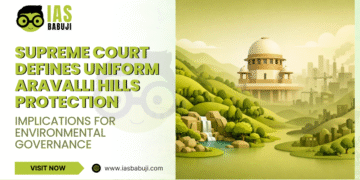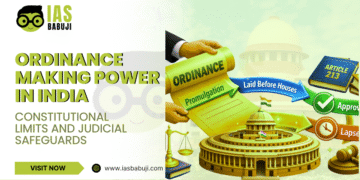It is no secret that every IAS officer has a habit of reading newspapers, and this reading habit generally begins with their IAS preparation. Also, there is no doubt that The Hindu is the first choice of many aspirants, not just the regular copy but The Hindu epaper/pdf is becoming a trending choice among many aspirants due to their hassle-free access. There are so many valid reasons to believe and follow The Hindu newspaper (epaper/pdf/editorial) during your IAS preparation. Hence, we will look at how to read the Hindu, especially the e-paper/editorial and pdfs to get the most out of it in the shortest time. At the end some of the most useful tips suggested by the toppers! Stay tuned.
- The Hindu Newspaper/Epaper Most Important Pages.
- IAS syllabus and The Hindu Newspaper/Epaper
- Focus on The Hindu News Not 'Drama'!
- Dynamic approach to The Hindu (epaper/editorial)
- Read The Hindu (epaper/editorial) with Pen
- Go Through The Hindu Newspaper (epaper/pdf) Headlines
- Consistency is The Key ~ Shrusti (BONUS!)
- FAQ | The Hindu Newspaper for IAS Exam – Editorial, epaper & PDF
- Editor's Note | The Hindu Newspaper
The Hindu Newspaper/Epaper Most Important Pages.
Much like other newspaper The Hindu (epaper/pdf/editorial) is filled with information. And you do not want to invest 2-3 hours of reading through each section of the paper daily, especially when you’re preparing for the IAS exam. So, when you see the Hindu epaper, the first thing you do is, you go through the headings of the essential pages. So, what are these crucial pages? For instance, the Hindu is an 18-page paper! With over 100’s of headlines, hence it is necessary to look through only a few vital pages. Thus, the vital pages typically are, 7 (Supreme court/High court verdicts)- 8 (Editorial)- 9 (Op-ed)- 12 (World news)- 13 &14 (trend and growth parameter related to the socio-economic sector).

Editorial Section (Page 8)
Perhaps the most vital page of The Hindu newspaper (epaper/pdf), is the editorial (try not to miss this section). Since, the editorial gives a complete analysis on a given topic, with facts, figures- logically backed statements. As a result, you form a strong opinion about the issue (which is vital!).
Because, as a bureaucrat (IAS officer) having logical, rational judgments is the most crucial part of your job. Thus by reading the editorial, your opinions become more firm and robust.
Note: IAS main exam has have questions directly asked from The Hindu’s editorial
Opposite the editorial page (Page 9)
The Hindu newspaper refers to this page as ‘comment’. The comments are written by people who are not related to the editorial team. It is also a vital section as it helps provide a different perspective on the topic, other than the editors.
Opposite the editorial is also written as as Op-ed
These are only two most important pages from the Hindu e-paper/pdf (i.e., editorial and op-ed). There are more pages where you must look but these two pages must not be missed under any situation.
IAS syllabus and The Hindu Newspaper/Epaper
A lucid syllabus is probably the only thing that the UPSC has given in the favour to the IAS aspirants. But many students fail to understand its value.
You can never find a single question ‘out of the syllabus’ in your IAS exam. Therefore, it becomes a necessity to comprehend and memorise the content of the syllabus. Here’s how the syllabus will help you dealing with The Hindu newspaper (e-paper/pdf).
Focus on the Keywords in The epaper
It would be crazy (and brilliant) if you remember the syllabus by heart, mind you the syllabus is LONG. Just focus on the keywords, and half of your work is complete. Since it is not feasible to remember the whole syllabus line by line (if you can, great!). So, next time you read the Hindu editorial/pdfs, you can quickly filter out the unnecessary things from the newspaper. And read only the necessary stuff (from your syllabus).
Your Time equals Your IAS goal
As seen before the Hindu is an 18-page long newspaper. And when you’re preparing for one of the most competitive exams every minute of your day matters. So, having a comprehensive understanding of the syllabus will save you all lot of time and help you with the overwhelming information that The Hindu (epaper/pdf) offers daily.
Focus on The Hindu News Not ‘Drama’!

Since, you’re an IAS aspirant drama is one of the things you need to stay away. And newspaper is no different. It is filled with information, but also some drama.
Therefore, learn to differentiate and reduce your reading time. So, what is Drama? The political controversies (someone throws shades at someone), the Bollywood huss and fuss. All of these are drama that you need to avoid and stay away.
So, bring your focus on the vital topics that are related to your syllabus. You have to learn to spot the difference between news and a drama. This will save you a lot of your time.
Dynamic approach to The Hindu (epaper/editorial)
So, what’s a dynamic approach? It is a method repeatedly suggested by the topper Srushti Deshmukh (IAS, AIR-5, 2019) and many others. By this method, you can easily cover multiple sub-topics under one! (given in The Hindu newspaper), amazing right? You have to dig deeper into a topic, but not too much, always be relevant to your syllabus, never go beyond it. Otherwise, it would be a waste of your precious time. Here’s how it works;

One Heading equals Multiple topics!
The best way to give you an idea about this method is via an example. Therefore, assume the editorial page of The Hindu epaper mentions about the government response the covid-19 pandemic. As a result, of this one article, you can cover, What are the criteria for a disease to be labelled as a pandemic (optional subject-biological science)? How does a virus differ from bacteria? What powers do the government/an IAS officer has in such situations? What steps has the government taken to manage the situation?
And that’s how you cover 3-4 different topics under one!
Example Given by an IAS!
Let’s take another example (given by Srushti Deshmukh).
For instance, say there is an article on poachers who have brought to justice. Now you can directly make a note about this, or you can dig deeper. And find out, what’s the name of the animal, what’s the status of that animal in The International Union for Conservation of Nature (IUCN)? Where does this animal is found (say-Assam)? What else is there in the Assam (national parks, and animals)?
Easy right? Now, inculcate this method in your reading and make the best out of The Hindu newspaper (epaper/editorial)
Srushti Deshmukh completed most of her current affair preparation by this method. And she credits this method as one of the backbones for her strategy. There is another tip from her discussed in the bonus section!
Read The Hindu (epaper/editorial) with Pen

You are surely going to forget whatever you’ve read in The Hindu newspaper (e-paper/pdf/editorial) newspaper if you do not make notes out of it, the very next moment.
So, Learn to make effectual notes from every article you read in The Hindu newspaper (editorial/pdf) every day. And make a separate note-book for the points you’ve made from The Hindu. Write those note in crips and bullet points. As a result, the next time you go through those notes, you get the whole idea of the article and topic just through reading your notes (revision is the key!).
Go Through The Hindu Newspaper (epaper/pdf) Headlines
Be more alert when you go through the headlines since the headlines of any section contain the micro-intro to the topic. Understand what the article has to offer. Stop reading every piece in the epaper and wasting your valuable time.
Hence, skim through the headings. Get the gist of the article and focus on the keywords that reflect in your syllabus too.
Because you have explicit knowledge of the syllabus, you know what you would be looking for in the Hindu newspaper. This way, you can only focus on the crucial topics that are more likely to be asked in the exam.
Some of the keywords you should never skip are;
- Supreme /High Court verdicts.
- Government Policies and Schemes (CAA, Farmer’s bill, EIA 200, etc).
- Environmental news (poaching, New national parks/ sanctuaries).
- Construction of bureaucratic buildings (central vista projects, etc).
- International Relations.
- Personalities and Awards.
- International Organisations.
- Economic Policies.
- Science and Technology.
Note: These are only a few broad examples that you can follow. You know your syllabus well, find out more keywords (especially for optional paper) and read about them to.
Consistency is The Key ~ Shrusti (BONUS!)
As said before, the dynamic approach was one of the backbones of her preparation, and another one was consistency.
Consistency is the key, you can not think about being an IAS officer and not being driven every day with the same force. If you follow your routine with discipline, you stand out from the rest of aspirants.
Remember consistency can be tough but you have be tougher (if things gets overwhelming take rest and seek guidance!)
To help you out in the best way possible, check out our article on how to crack IAS in your first attempt, click here. Read and start your preparation right now! Mind the clock.
FAQ | The Hindu Newspaper for IAS Exam – Editorial, epaper & PDF
The Hindu is no doubt the most favourite option for mots IAS aspirants. And the reasons are very much valid too. The Hindu only focuses on the essential news concerning national and international interest. It does not give much focus on the trivial story.
And in past questions has been directly asked from the Hindu’s editorial section.
Yes, it does. Think about it for an instant any essential news would be cover by every news media, right?
So, reading from one newspaper can help you and save your time.
The Hindu is advice over others because of its factual articles and enhanced vocabulary (which will also help you in IAS main exam)
Yes, It is no hidden fact that The Hindu is a left-wing paper. As it often ‘criticizes’ the government for the faults in the policies and schemes.
However, If your thoughts contradict with the Hindu’s editorial section, then it means you’ve clearly understood the matter and form an original opinion based on facts and logic.
Write down your thoughts and form a firm answer. Remember an IAS officer works for the betterment of people and society at large. And differences of opinion (with valid reasons) is what thrives a civilization.
Yes, you can get a free 7-day trial for The Hindu’s e-paper. But you have to pay a subscription amount after the end of the trail. The amount differs according to the type of subscription you would buy (Monthly or yearly).
Editor’s Note | The Hindu Newspaper
The Hindu is a reputed newspaper. It is known for its to the point reporting. Every IAS aspirant has to read a newspaper every day, but it is a time-consuming task. Therefore, this article will help you with how you can make most of the Hindu epaper without wasting a single minute. You can also use it as a guide if you are not willling to use The Hindu newspaper. Make the most (or notes) out of every sentence you read in The Hindu. Lastly, enjoy the process, it is worth taking! All the best 🙂







